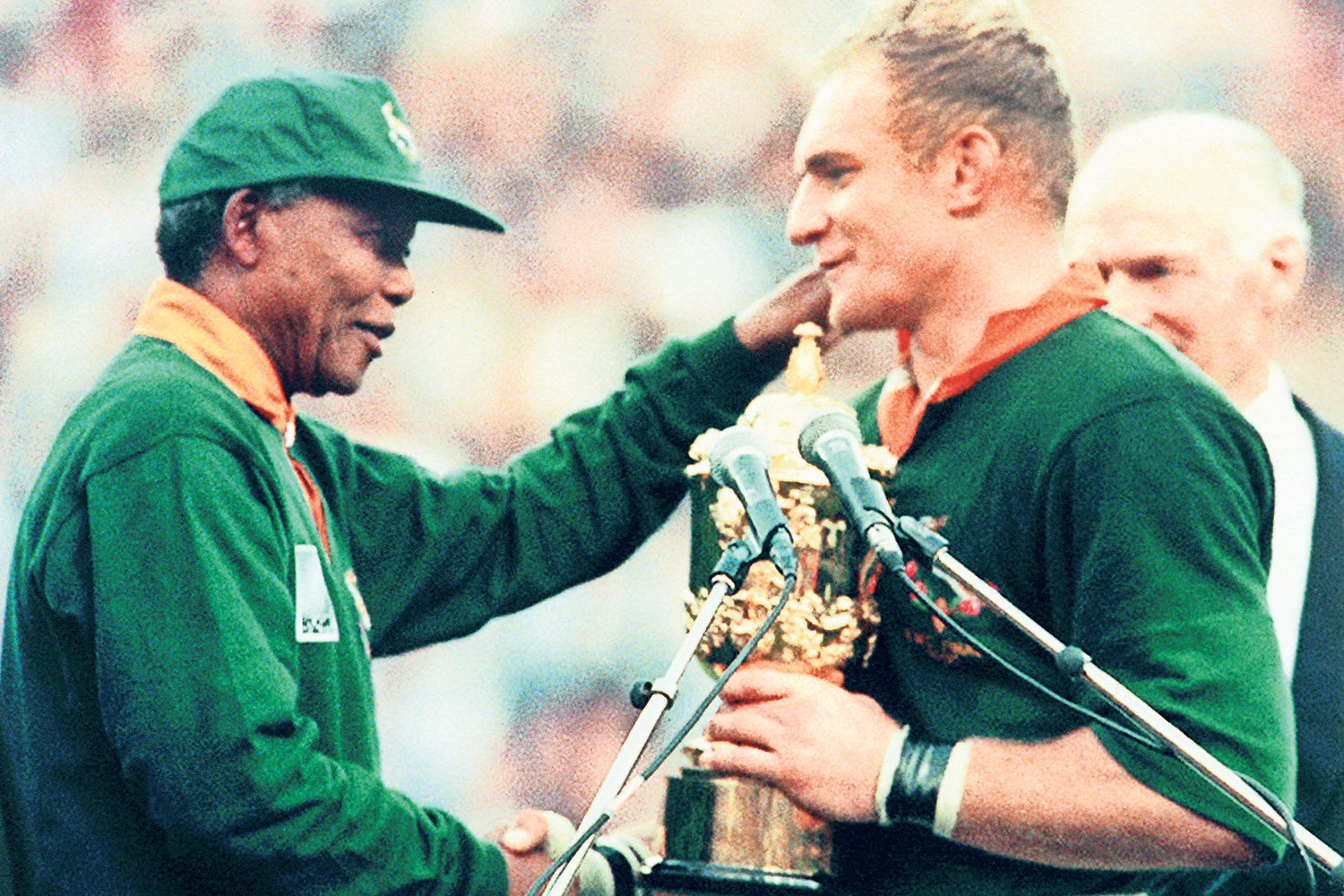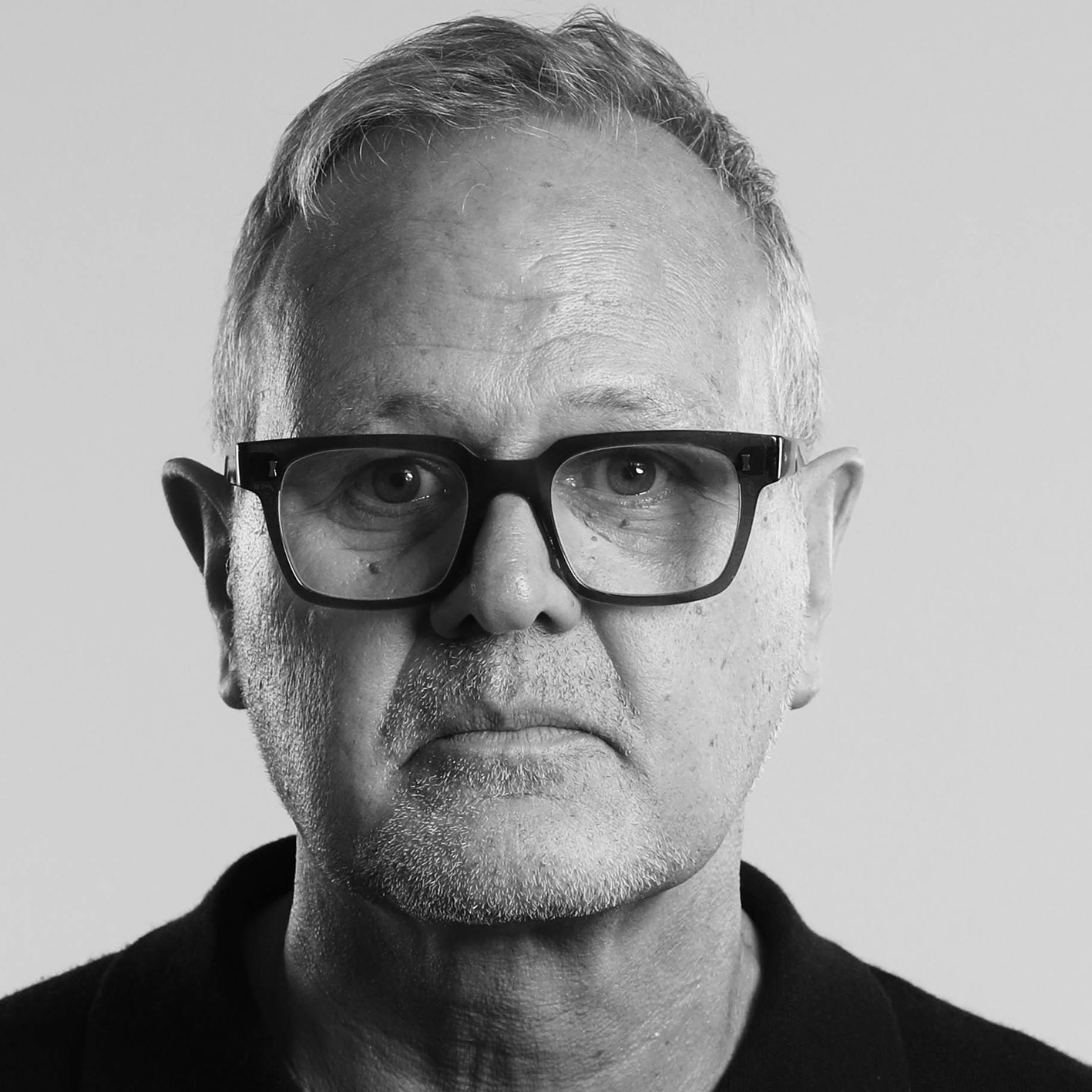Thirty years ago this Tuesday, Nelson Mandela stepped on to a rugby pitch wearing the shirt of white oppression to complete the most audacious act of nation building that sport has seen.
On 24 June 1995, Mandela appeared before a 95% Afrikaner crowd as South Africa faced New Zealand in the Rugby World Cup final. He wore the No 6 jersey of the Springbok captain Francois Pienaar, who Mandela had co-opted into the job of uniting black and white post-apartheid. It remains the No 1 example of sport finding a higher purpose.
South Africa had been the only country in the world to be designated a “crime against humanity” by the United Nations. It was a pariah to the Olympic movement and most world governing bodies. Sport had been the haven and heartland of white supremacy.
“Don’t address their brains, address their hearts,” Mandela instructed his party, setting out a strategy to convert white South Africa. He knew many of the pleasure points of the Afrikaner hegemony could be found in sport.
In the triumphant 1995 South Africa side was only one non-white player, Chester Williams, who was “coloured” rather than black, Afrikaans speaking, and a sergeant in the South African Defence Force. Not until the 2019 World Cup win would South African rugby go into battle with a black leader, the marvellous Siya Kolisi, who won back-to-back World Cups in Japan and France.
Since Mandela’s inspirational use of rugby to avert a civil war and build commonality between the jailer and the jailed, sport has been usurped in countless ways by states. Which makes the brief but profound coming together of the subjugated and the subjugator in the most momentous of all World Cup finals worth honouring again.
The Mandela World Cup, five years after his release from Robben Island, was a miracle of social engineering but also a salutary tale. According to the World Bank, South Africa remains the most unequal of 164 countries measured. “The legacy of colonialism and apartheid, rooted in racial and spatial segregation, continues to reinforce inequality,” the World Bank’s report said.
Mandela’s mission to demolish legal apartheid succeeded but left the socio-economic sphere largely untouched. The party he led, the African National Congress, was later riven by corruption. Billions were looted from the state.
The ANC finally lost its 30-year parliamentary majority last June. Mandela, who died in 2013 aged 95, was spared the sight of the party he galvanised in his tiny Robben Island cell sliding into disgrace.
To appraise South Africa’s attritional 15-12 win over the All Blacks 30 years on is to take a crash course in political reality. Structural inequality isn’t transformed overnight by a rugby tournament, as the great Springbok winger Bryan Habana will say in an episode of Global’s sports history podcast, How It All Played Out (disclaimer: the podcast is co-hosted by Mark Pougatch and this author).
Newsletters
Choose the newsletters you want to receive
View more
For information about how The Observer protects your data, read our Privacy Policy
Habana was a 12-year-old in the crowd in 1995 and recalls a game that “provided a base of phenomenal unity”. He remembers “getting to experience that monumental moment, that iconic instance of Nelson Mandela walking out in that No 6 jersey”.
Seared into his memory too are the “20 seconds of Francois Pienaar saying it wasn’t for the 60,000 South Africans in the stadium, it was for the 43 million – and just how that echoed through every corner of South Africa, a very divided nation coming together on the basis of sport providing hope and unity.”
In a world lacking great leadership, we can marvel still at Mandela’s project of “enlightened forgiveness”, conceived during 27 years in prison. As John Carlin wrote in his book Playing the Enemy – “In jail he [Mandela] judged that the way to kill apartheid was to persuade white people to kill it themselves.”
Habana hesitates before answering the question of whether Mandela’s legacy has been fulfilled. But then he realises that part of the answer is closer to hand than economic measurements. It is there in the rugby, which evolved from 1995 into the World Cup wins of 2019 and 2023, which wouldn’t have been possible without the “catalytic moment in 1995”.
He talks about “the catalyst that Nelson Mandela was in his understanding the power sport had to change mindsets, change the way people conducted themselves, change the way they thought about the world. Fast forwarding to 2019 and 2023, we have this incredibly encompassing representative of the Rainbow Nation team based on [1995]. You know, there’s no greater person than Siya Kolisi, who wears his humility on his sleeve in the most incredible way possible.” More than the 2007 World Cup winning side, Habana thinks, Kolisi’s men speak of “a new demographic of South Africans”.
The personal and the political converge in Habana’s story, which tells the bigger one of Tuesday’s 30th anniversary. His 124 Test appearances, 67 tries and World Cup winner’s medal from 2007 can be traced directly to the spectacle he observed as a 12-year-old boy at Ellis Park, Johannesburg.
“I was tenfold more inspired,” he says, “because of what that 1995 team did for South Africa.”
Photo by Jean-Pierre Muller/AFP via Getty Images

